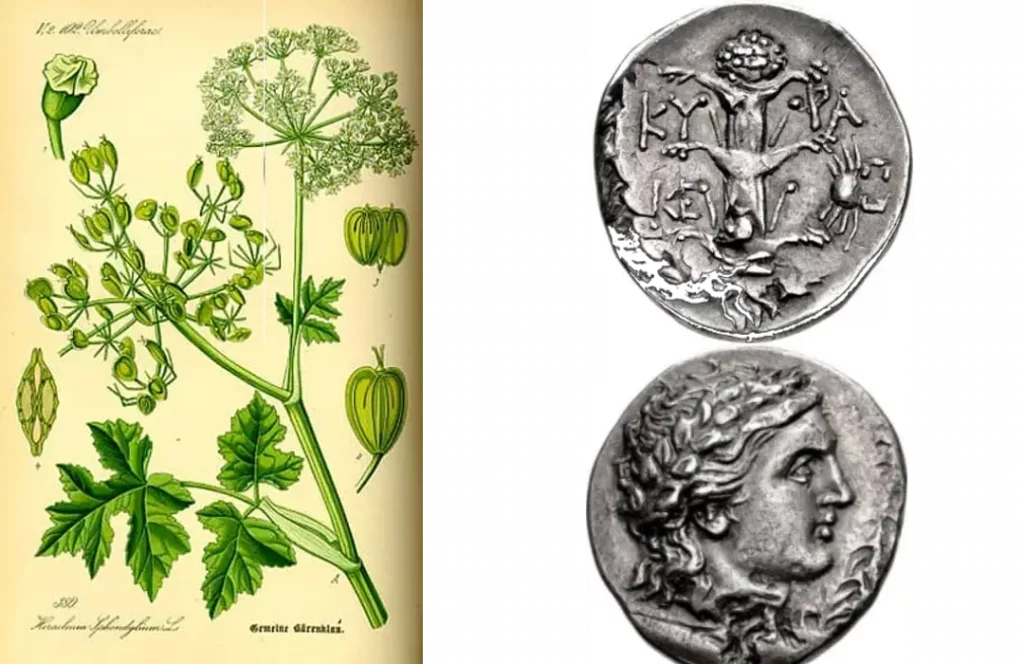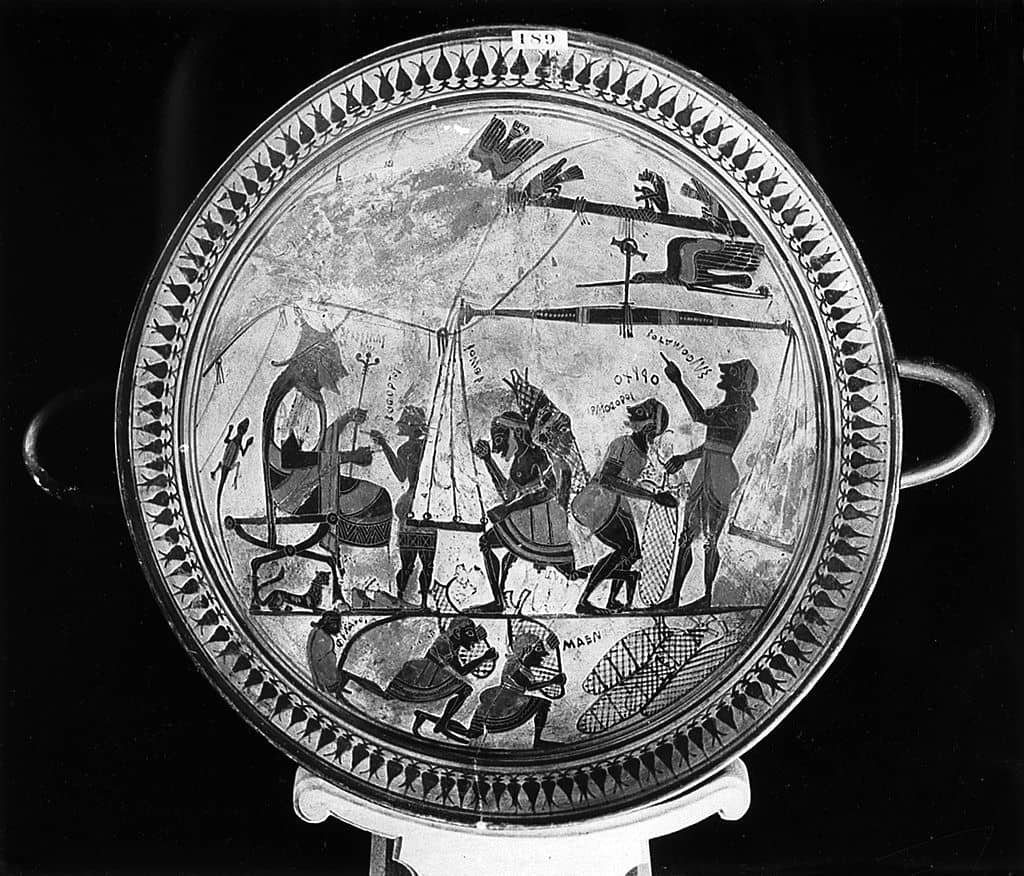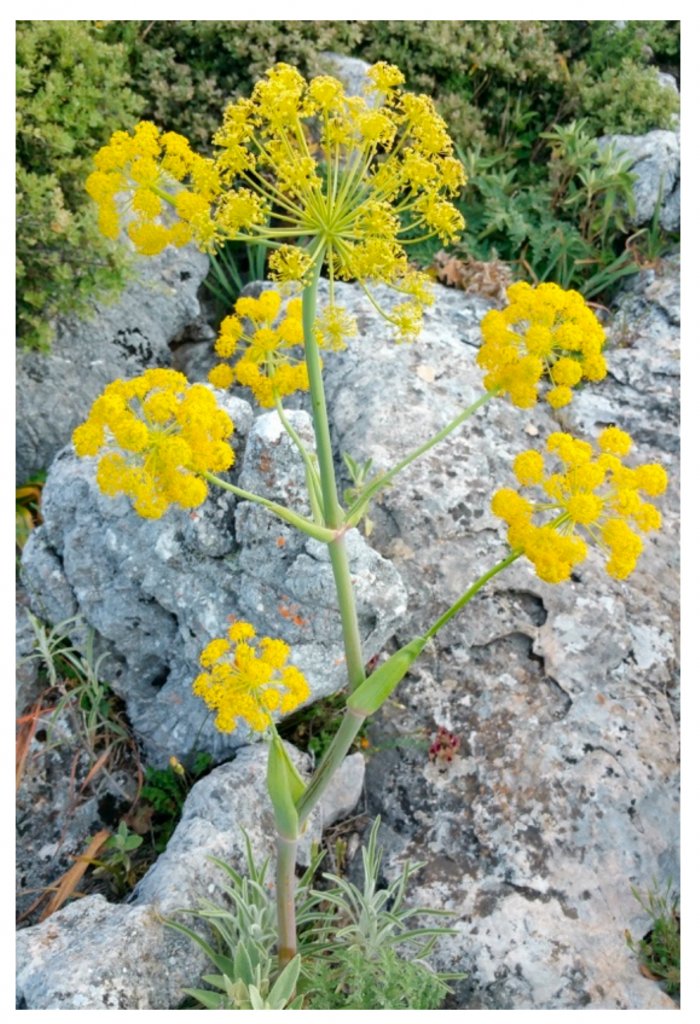Ancient Romans Reproduced so much that A Plant Went Extinct
Ancient Romans and Greeks used a plant called Silphium as a super effective contraceptive. But here’s the crazy part: they used it so much that it actually went extinct. Can you imagine that? This plant was so important to them, and they relied on it so heavily, that they ended up losing it forever.
Its heart-shaped seeds are thought to be the reason we associate the symbol with romance to this day.
It was cherished by the Romans and held such a special place in their hearts that they immortalized it in poems, songs, and esteemed works of literature. Its popularity was so profound that it contributed to the wealth and prosperity of the city of Cyrene, located in modern-day Shahhat, Libya, making it the wealthiest city in Africa.

The history of silphium can be traced back to ancient times. It was first mentioned in writings by the Greek poet Hesiod in the 8th century BCE, and it was also referenced in the works of other ancient Greek writers, including Theophrastus and Aristotle. The ancient Greeks believed that silphium was a gift from the gods and valued it highly for its medicinal properties.
The Greek residents of Cyrene valued silphium to such an extent that they depicted its silhouette on their currency before relinquishing control to the Romans. The significance of this extraordinary plant was even recognized by Julius Caesar, who stored an impressive stockpile of 1,500 pounds (680 kilograms) in the official treasury.

It grew abundantly in the wild in ancient North Africa, particularly in the region that is now modern-day Libya. It had large heart-shaped leaves, tall stalks, and yellow flowers, which grew in clusters. It was unique in its flavor and aroma. The leaves and stems were used to flavor food and wine, while its juice was used as a natural remedy for a variety of ailments.
Not only as a contraceptive and in beverages, but Silphium was also used for treating a variety of medical conditions such as coughs, sore throats, and indigestion.
The plant grew only in a small region around Cyrene, which made it a rare and valuable commodity. As the plant became more and more scarce, its price skyrocketed, making it became more valuable and further increasing the demand for it. Despite efforts to cultivate the plant and protect it from overharvesting, it ultimately proved to be unsustainable and went extinct.

You May Like:The Rape of Nanking: The Forgotten Holocaust of World War II
The loss of the Silphium plant had significant consequences for the ancient Greeks and Romans. Without access to this effective form of birth control, the population of these societies may have grown at a faster rate, leading to increased competition for resources and potentially putting strain on their economies and environments.
But the story of Silphium doesn’t end there. In fact, its extinction may have had even wider-reaching consequences. The plant was not only used as a contraceptive but also as a remedy for a variety of ailments. Its loss meant that people were no longer able to rely on it for these medical purposes, and they had to find alternative treatments. This had a major impact on the health and well-being of the ancient Greek and Roman people.
You May Like: 7 Shocking Misconceptions About the Holocaust: The Truth
The extinction of the Silphium plant serves as a cautionary tale about the dangers of overconsumption and the need to carefully manage our use of natural resources. It also serves as a reminder of the important role that plants like Silphium have played in human history, and the need to preserve and protect the biodiversity of our planet. So the next time you hear about a plant or animal going extinct, remember the story of Silphium and the lessons it holds for us all.

Today, the exact identity of silphium remains a mystery, as no specimens of the plant have survived. However, it is believed to have been related to the fennel or giant fennel plant, and its medicinal properties are thought to have been due to a resinous substance contained within the plant. The legacy of silphium can still be seen in ancient artwork and writings, which depict the plant and its many uses.
You May Like: The Magic of Makeup: How Ancient Egyptians Used Cosmetics for More Than Just Beauty
51 Truly Remarkable Historical Facts That Will Wrap Your Sense of Time.
“Those who don’t know history are destined to repeat it.”
– George Santayana
- Cleopatra Married Both of her Brothers.
- A jockey won a Race despite being DEAD.
- In Ancient Rome, urine was used as a Mouthwash. uhha:(
History is stranger than fiction… and often grosser & creepier too. But it’s always great to read through😊
Check Out

such many lessons… i would like to move to America and learn all this ancient history and remind myself of how long i have been here… Kenya is fine we love God
0713967728 is my personal number
This is a great article to read and know about the past. This is my time hearing about this plant and it’s uses. I’m definitely bookmarking this site for future references.
Thank the internet for allowing us half wit’s to check facts LOL. (FYI i got (way, way) too much amusement from the replies) Seriously, Thank you, @Know Nepal for the time you must have spent digging up this stuff 🙂
Also for I would like to Thank the Critics 😉 For the tears of joy/laughter I received reading the comments. Hope the Critics are doing good being ruled these days and didn’t accidentally fall of the edge of the earth reading. BTW you know you have the power inside you to stop reading. God bless you my children 😉 LOL… Wait I heard the moon isn’t round either “apparently the pictures are only of the one side” someone should investigate that??? LOL 😉
B/R
Christopher L
nice
this is historically significant!
I would like to get your backlink to my blog… you got interesting article here.
just send me email…
CONGRATULATIONS
Absolutely fascinating read! The story of Silphium highlights the interconnection between human practices and the environment. In terms of maintaining a healthy ecosystem, it’s a poignant reminder that sustainable harvesting is key. It’s like when we care for our homes or any space — balance is crucial. Overuse of any single resource can lead to irreparable loss, much like the overuse of harsh chemicals can damage delicate surfaces or materials. Instead, just as the Romans could have benefited from diversifying their reliance on natural resources, we too can benefit from using a variety of gentle and eco-friendly solutions to preserve our surroundings for the long term. The legacy of Silphium certainly leaves us with much to ponder about responsible stewardship!
Of course, the natural resources we have today should be used with proper care and in the limit, otherwise soon we will run out of them and this world would lead to chaios nothing else.